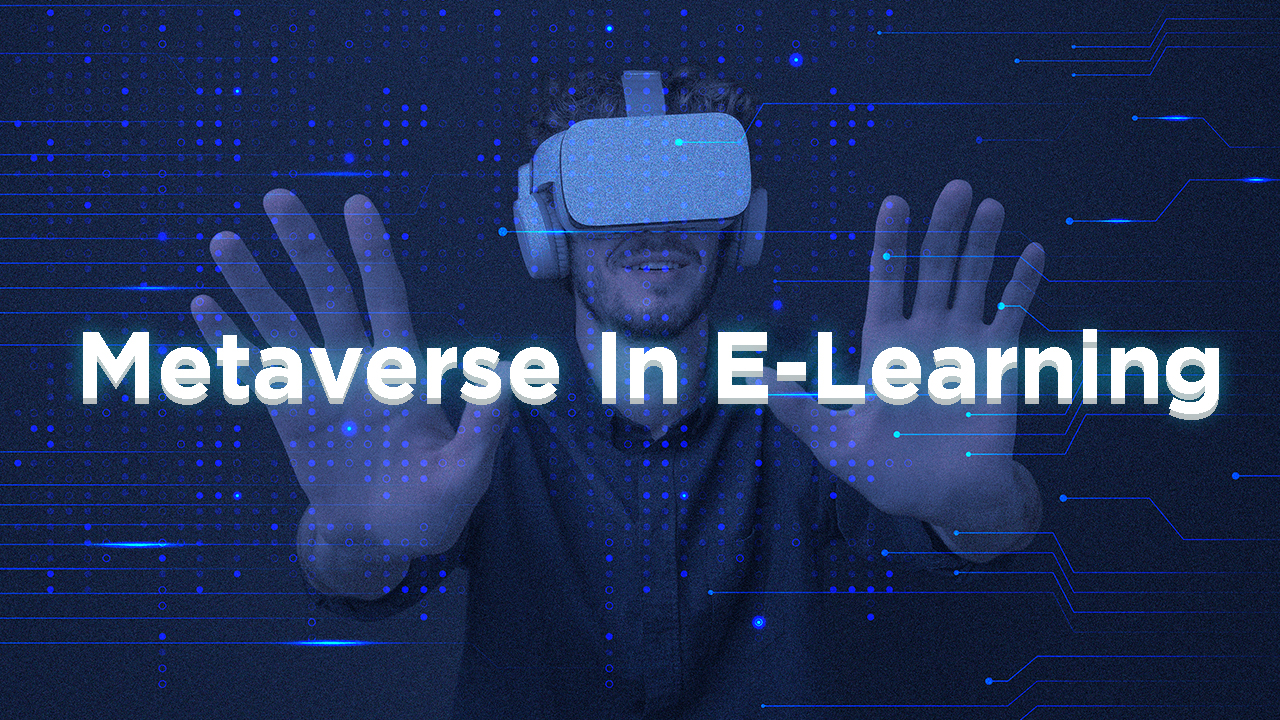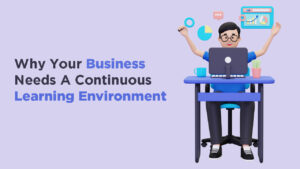The metaverse has quickly become a transformative force in digital interaction and learning. When Mark Zuckerberg announced Facebook’s rebranding to Meta, the term gained mainstream attention, sparking discussions about its potential to revolutionize various industries, including education and corporate training.
First introduced by Neal Stephenson in his sci-fi novel Snow Crash, the concept of the metaverse envisions lifelike avatars interacting in immersive 3D environments. Major tech giants, including Google and Microsoft, have invested heavily in metaverse development, signaling its growing influence. According to Statista, the metaverse market is projected to grow from $47.48 billion to $678.8 billion by 2030.
At its core, the metaverse is a digital ecosystem that merges augmented reality (AR) and virtual reality (VR) to create immersive, interactive experiences. Within e-learning, the metaverse enhances engagement, improves knowledge retention, and provides hands-on training simulations, offering learners a dynamic, real-world learning environment.
Key Technologies Powering the Metaverse
1. Virtual Reality (VR)
VR creates fully immersive 3D environments where learners can engage with digital simulations as if they were real-world experiences. This technology is particularly beneficial for high-risk industries (e.g., manufacturing, healthcare, aviation) where learners can practice tasks in a safe, controlled environment. The gaming industry has been a pioneer in VR, but its application in education and training is rapidly expanding.
2. Augmented Reality (AR)
Unlike VR, which creates a fully digital world, AR overlays digital content onto real-world environments. This allows learners to interact with virtual objects while still being present in their physical surroundings. AR is especially useful in technical training, where employees may need quick, on-demand access to product manuals, machinery guides, or interactive workspaces.
The Impact of the Metaverse on Learning and Development
The metaverse is reshaping corporate training and education, providing interactive and engaging learning experiences. While high-risk industries such as energy, construction, and healthcare have already adopted metaverse-based learning, other industries are now exploring its potential to enhance employee training and development.
With more companies transitioning to hybrid and remote work, executives are embracing virtual learning solutions to ensure continuous skill development, collaboration, and engagement. The metaverse’s interactive environments allow learners to participate in realistic training scenarios, collaborate with peers, and practice skills in a risk-free setting.
A study suggests that experiential learning improves knowledge retention by up to 75%, making the metaverse an ideal platform for training and skills development. Gartner predicts that by 2026, 25% of people will spend at least one hour per day in the metaverse for work, education, or entertainment.
Metaverse Use Cases in Training & Development
1. Employee Onboarding
Traditional onboarding can be time-consuming and resource-intensive. The metaverse provides an intuitive, immersive onboarding experience, where new hires can:
✅ Explore company culture, values, and policies in a virtual environment.
✅ Participate in real-time interactions with managers and team members.
✅ Reduce onboarding time while improving retention and engagement.
2. Safety Training
Safety training is critical, especially in industries like construction, manufacturing, and healthcare. The metaverse enables employees to:
✅ Identify workplace hazards and practice emergency response protocols in a risk-free setting.
✅ Receive instant feedback and track progress.
✅ Enhance decision-making skills through simulated scenarios.
3. Sales Training
Sales professionals can benefit from interactive, real-world simulations that mimic customer interactions. The metaverse allows:
✅ Sales teams to role-play negotiations and refine their pitches.
✅ Trainers and managers to observe and provide real-time feedback.
✅ Enhanced storytelling and scenario-based training, improving sales performance.
4. Skills Training
Traditional in-person training often requires significant resources. The metaverse:
✅ Reduces training costs by eliminating material waste.
✅ Offers hands-on practice in a virtual space.
✅ Supports both technical and soft skills training, such as:
- Technical skills: Equipment handling, machinery operations, and coding.
- Soft skills: Communication, teamwork, customer service, and leadership.
The Value of the Metaverse in E-Learning
1. A Learner-Centric Approach
The metaverse prioritizes interactive, engaging learning experiences that keep employees motivated. Learner-centered training ensures:
✅ A captivating virtual environment where learners interact with peers and trainers.
✅ A fully simulated role-play experience, enhancing real-world applicability.
✅ Enjoyable, immersive learning that improves knowledge retention.
2. Data-Driven Decision Making
The metaverse allows organizations to track:
✅ Learner behavior, progress, and engagement levels.
✅ The effectiveness of training programs through learning analytics.
✅ Areas where employees need additional support or training.
3. Addressing the Hybrid Workplace Challenge
With the rise of remote and hybrid work, organizations struggle to maintain collaboration and engagement. The metaverse solves this by:
✅ Providing virtual meeting spaces where employees can interact as avatars.
✅ Enabling real-time discussions, brainstorming, and team-building activities.
✅ Offering department-specific training, large-scale virtual events, and workshops.
Final Thoughts
The metaverse is redefining the future of e-learning, offering immersive, engaging, and effective training experiences. By integrating VR, AR, and interactive simulations, organizations can create lifelike learning environments that improve knowledge retention, skill acquisition, and collaboration.
As technology continues to evolve, businesses must embrace innovative training solutions that align with their learning objectives and workforce needs. The metaverse is not just a trend—it’s the next step in digital learning transformation.
Ready to transform your learning strategy? Explore the metaverse for e-learning today!






